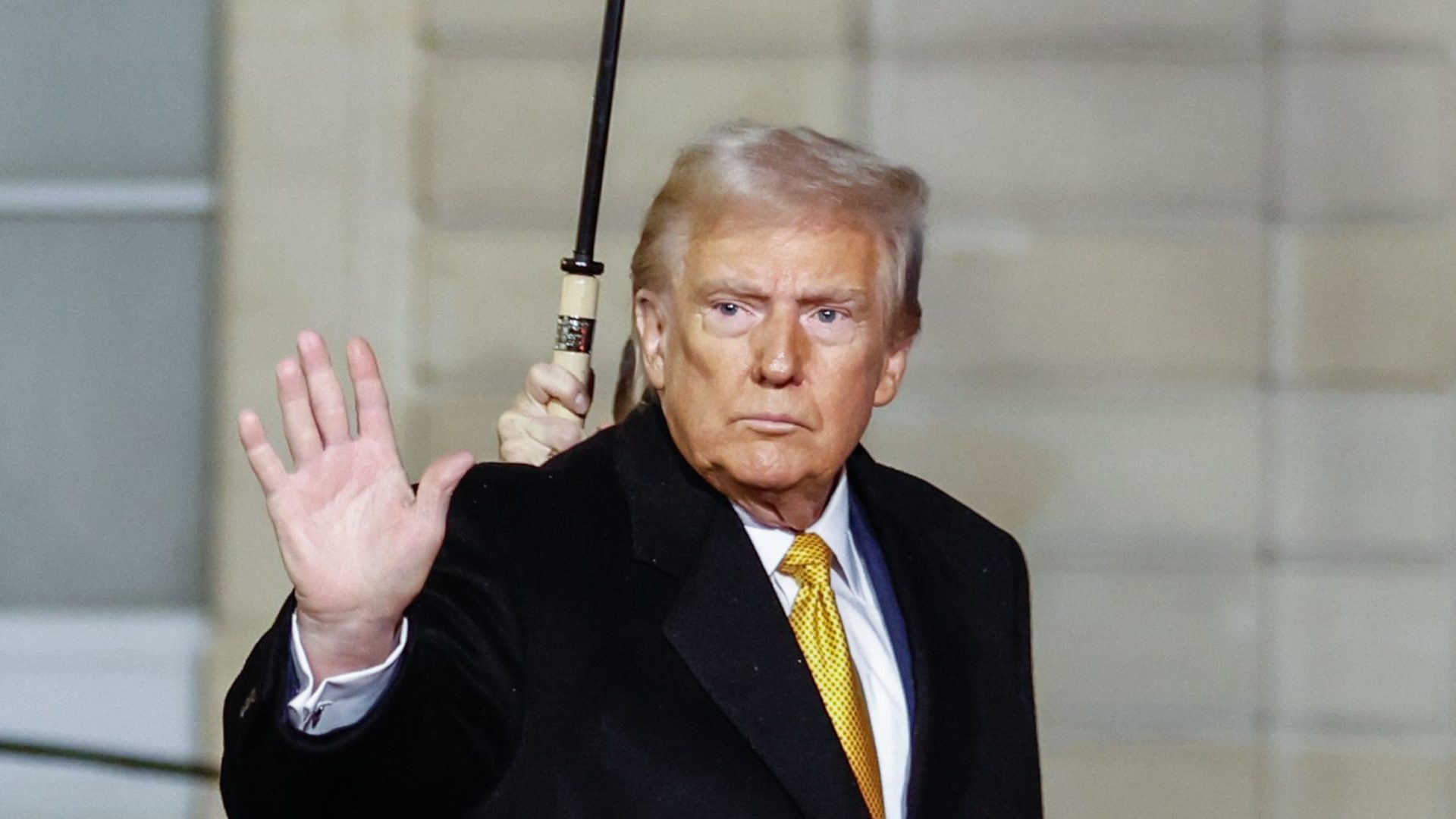Mohammed Badra/EPA-EFE / Shutterstock / Mohammed Badra/EPA-EFE / Shutterstock
- Apella Wealth Brings In $144 Million RIA Young Wealth Management Team
- State regulators strike $17M settlement with Edward Jones
- Edward Jones, Osaic, Cambridge hit with $8.2M in restitution
- Morgan Stanley wins deferred comp dispute
- What it would cost to live like the ‘Home Alone’ family today, according to financial advisors
Commitment to Our Readers
GOBankingRates’ editorial team is committed to bringing you unbiased reviews and information. We use data-driven methodologies to evaluate financial products and services – our reviews and ratings are not influenced by advertisers. You can read more about our editorial guidelines and our products and services review methodology.

20 Years
Helping You Live Richer
Bạn đang xem: 7 Ways Trump Helped (And Hurt) My Personal Finances in His First Term


Trusted by
Millions of Readers
Most Americans have strong feelings about President-elect Donald Trump, positive or negative. But rhetoric aside, how have his policies impacted Americans’ personal finances?
Brenda Christensen is the founder of Stellar Public Relations, and in 2024, TechRound named her in its “Top 50 Women in Startups & Tech” list. On balance, she said the first Trump administration’s policies boosted her business and personal finances alike.
But she’s no frothing-at-the-mouth fangirl who fails to see the bad alongside the good. She added that not every Trump policy bolstered her bottom line and offered a clear-eyed perspective about the ways Trump’s policies both helped and hurt her finances as a small business owner.
Relaxed FINRA Rules
Prior to Trump’s first term, the Financial Industry Regulatory Authority (FINRA) imposed strict regulations on every conceivable financial transaction. It still does in many ways, but the first Trump Administration reduced some of that regulation where they could.
“Trump loosened FINRA rules by not requiring a broker’s license in order to receive finders fees for introducing startups to venture capitalists,” explained Christensen.
As someone who has worked in the industry for decades, Christensen has an enormous network of business contacts — which she was able to earn greater profits from by connecting them. “This directly lifted my company’s revenue. We could suddenly get paid for connecting compatible people together.”
Reduced Tax Burden
Xem thêm : Will alternative investments go mainstream in 2025?
The Tax Cuts and Jobs Act of 2017, the first Trump administration’s signature legislation, changed the corporate tax rate from tiered brackets ranging from 15%-39% to a flat 21% for all businesses.
“As a small business owner, he reduced our tax burden. That includes not just a lower tax rate, but also a simplified tax return with fewer regulatory restraints,” Christensen said. “In turn, that helped not just our business but many others return to healthy profit margins.”
Incentivized Reshoring
On the campaign trail in 2016 — and 2024, for that matter — Trump pledged to bring offshored business back to the U.S. By the end of his first term, the president claimed victory on that front, pointing to “510,000 new manufacturing jobs added between President Trump’s election and February 2020,” The American Presidency Project reported.
His administration also pointed out that the U.S. added more manufacturing jobs in 2018 than it had in 30 years.
“By reducing barriers to entry for large corporations to return to the U.S., he stimulated the economy,” said Christensen. “That had a trickled down effect that boosted my business and personal finances.”
Less Restrictive Energy Policies
Soon after taking office, Trump initiated his “America First Energy Plan.” It loosened several energy regulations, aiming for energy independence. And sure enough, in 2019, the U.S. produced more energy than it consumed, as reported by the Institute for Energy Research.
“By opening up the energy sector and incentives for drilling, he reduced transportation costs, which also had a trickle-down effect through our clients to us, and throughout the economy,” Christensen added.
COVID-19 Chaos and Disruptions
Of course, not everything went smoothly under the first Trump administration. While no one could have predicted the COVID-19 pandemic, that doesn’t mean the administration handled it gracefully.
“The Trump White House response to COVID could have been handled better,” Christensen said. “They could have prevented a lot of financial ruin.”
Indeed, Marketwatch reported on the many early warnings of profitable mega-corporations taking huge Paycheck Protection Program (PPP) loans while hundreds of thousands of small businesses went under and never reopened.
Christensen added that the public health response seemed both ineffective and economically costly. “Due to both federal policies and local lockdowns, we were unable to be as mobile as usual. Our access to necessary goods was strained, both personally and in our business.”
Pandemic Real Estate Reshuffling
One industry that didn’t suffer in the pandemic was real estate. In fact, it boomed so much that it set the stage for unsustainable growth, wild population swings and later corrections.
“There was a huge uptick in housing sales in our area in Florida, which created several stresses on infrastructure. In fact, it continues to this day,” Christensen said. “While yes, our own real estate appreciated exponentially, local services remain strained even today due to the huge influx of people from other states. That massive interstate migration might not have happened under better pandemic policies.”
Low Inflation Despite Pro-Business Policies
As a small business owner, Christensen appreciated many of the pro-business policies under the first Trump administration. Business-friendly policies can sometimes overheat the economy to create bubbles and inflation without a watchful eye — but they didn’t under the Trump White House.
“Trump kept inflation in check despite fueling the economy,” Christensen said. “That balance substantially increased my business and personal financial buying power.”
Will the president-elect be able to walk a similar balance in his second administration? Only time will tell.
Editor’s note on political coverage: GOBankingRates is nonpartisan and strives to cover all aspects of the economy objectively and present balanced reports on politically focused finance stories. You can find more coverage of this topic on GOBankingRates.com.
Nguồn: https://horizontalline.icu
Danh mục: News









